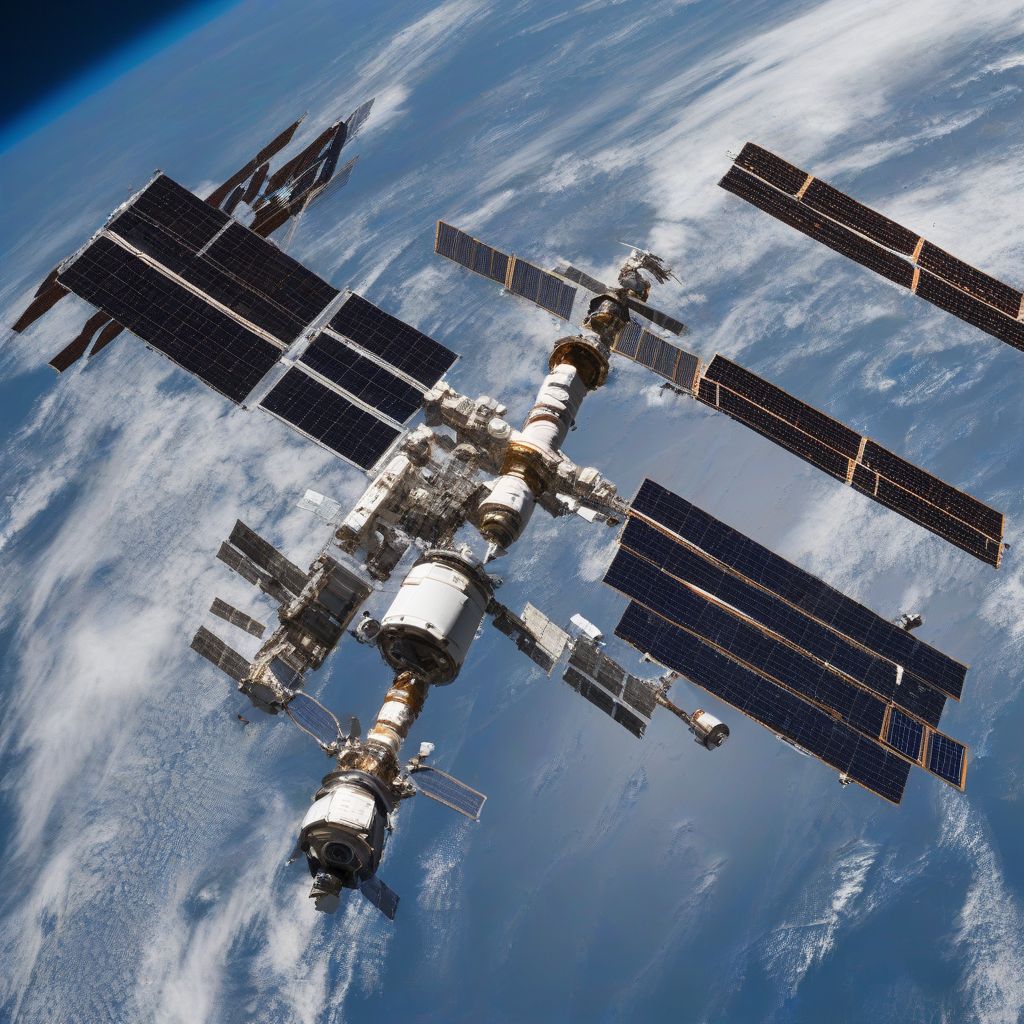Remember the awe-inspiring words of Neil Armstrong as he took humankind’s first steps on the Moon? “One small step for man, one giant leap for mankind.” This iconic statement embodies the spirit of space exploration – a realm where collaboration transcends borders and unites us in the pursuit of knowledge and discovery.
As we stand at the cusp of a new era in space exploration, one marked by ambitious missions to the Moon, Mars, and beyond, the importance of international collaboration has never been greater. Why? Because the challenges we face – both technological and financial – are too great for any one nation to overcome alone. This collaborative spirit isn’t just idealistic; it’s absolutely essential for the future of space exploration.
Why International Collaboration is Key to Our Future in Space
International collaboration in space exploration is the cornerstone of success for several compelling reasons:
1. Pooling Resources for Greater Innovation
Space exploration is a notoriously expensive endeavor. By sharing the financial burden, nations can pool their resources to develop more advanced technologies and undertake more ambitious missions than they could independently. This synergy allows for a faster pace of innovation and pushes the boundaries of what’s possible in space.
Think about the International Space Station (ISS), a testament to the power of collaboration. This remarkable feat of engineering wouldn’t exist without the combined efforts of 15 nations, demonstrating how working together can lead to groundbreaking achievements in space.
2. A Diverse Range of Expertise
Every nation brings its unique strengths and expertise to the table in space exploration. From engineering and robotics to astrophysics and medicine, international partnerships allow us to tap into a global talent pool. This cross-pollination of ideas leads to more creative solutions and accelerates progress in various fields.
For instance, the James Webb Space Telescope, a marvel of modern science, is the result of a collaborative effort between NASA, the European Space Agency (ESA), and the Canadian Space Agency (CSA). This international endeavor has gifted us with unprecedented views of the cosmos, expanding our understanding of the universe.
3. Mitigating Risks and Ensuring Success
Space exploration is inherently risky. By sharing the responsibility for missions, international collaboration helps to mitigate those risks. If one mission encounters difficulties, other nations can provide backup and support, increasing the chances of overall success.
4. Fostering Global Cooperation and Understanding
Beyond the scientific and technological benefits, international collaboration in space fosters a spirit of global cooperation and understanding. Working together on a common goal helps to break down barriers between nations, fostering diplomacy, and promoting peace. It’s a powerful reminder that we’re all part of something much larger than ourselves.
Challenges and Opportunities on the Path to Collaboration
While the benefits of international collaboration are undeniable, there are also challenges to navigate:
- Political and Bureaucratic Hurdles: Differing national interests and bureaucratic processes can sometimes hinder collaboration, requiring careful diplomacy and negotiation.
- Intellectual Property Rights: Clear agreements on sharing technological advancements and data are crucial to ensure fairness and encourage ongoing collaboration.
- Cultural Differences: Working across cultures requires sensitivity, effective communication, and understanding diverse perspectives to ensure smooth collaboration.
However, these challenges are outweighed by the incredible opportunities that international collaboration presents:
- Expanding Human Presence in Space: Collaborative efforts will be vital in establishing a sustainable human presence on the Moon and eventually venturing further to Mars and beyond.
- Unlocking Scientific Discoveries: By working together, we can accelerate the pace of discovery and answer fundamental questions about the universe we live in.
- Inspiring Future Generations: International collaboration serves as a beacon of hope and inspiration for future generations, demonstrating what humanity can achieve when we work together toward a common goal.
 International Space Station
International Space Station
The Future of Space Exploration is Collaborative
As we look toward the future of space exploration, international collaboration is not just an option; it’s a necessity. Just as the crew of the ISS lives and works together in harmony, representing the best of humanity’s cooperative spirit, so too must nations on Earth continue to work together to unlock the secrets of the cosmos. By embracing collaboration, we can usher in an era of unprecedented discovery, technological advancement, and global unity, ensuring that the future of space exploration is as bright and awe-inspiring as the stars themselves.
What are your thoughts on the future of space exploration? Share your thoughts and join the conversation!
[amazon bestseller=”space exploration”]
